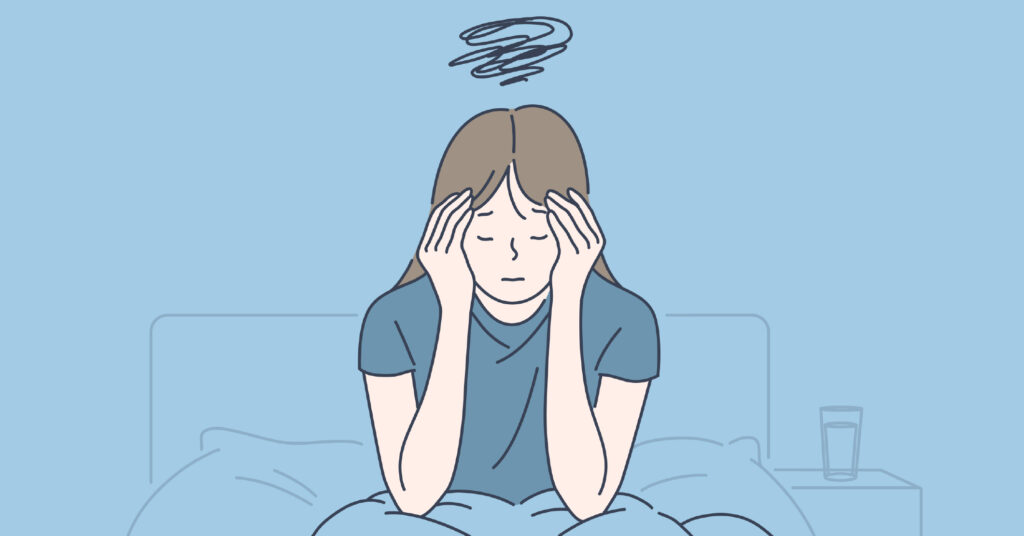Are there moments when your heart starts racing, your stomach churns and you feel an impending sense of dread but aren’t sure why? If so, you may be experiencing anxiety symptoms.
Anxiety feels unpleasant and can cause physical and psychological symptoms, making it difficult to concentrate, socialize, partake in enjoyable activities or even leave the house. However, anxiety can also feel similar to other emotions. This can make it tricky to understand what you’re experiencing.
Let’s explore the warning signs of anxiety and see how they compare to those of other conditions to help you take control of your health and well-being.
What Is Anxiety?
Anxiety is a mental health disorder that causes enhanced feelings of panic, nervousness or fear that interfere with daily life. It often involves recurring episodes of sudden, overwhelming terror or uneasiness that can escalate into a panic attack within minutes.
If these feelings sound familiar, you aren’t alone — anxiety disorders are the most common mental illness in the United States, affecting 40 million adults each year. There are several types of anxiety disorders, including:
- Generalized anxiety disorder
- Social anxiety disorder
- Panic disorder
- Separation anxiety disorder
- Specific phobias
Common Anxiety Symptoms and Signs
When you have anxiety, it can feel impossible to control your emotions. You may react in a way that’s disproportionate to the situation and avoid certain people, experiences or places to prevent these feelings from occurring.
Although anxiety affects everyone differently, common anxiety symptoms include:
- Feeling restless, tense or nervous
- Having difficulty concentrating on anything other than your current worry
- Feeling a sense of impending doom, danger or panic
- Feeling tired or weak
- Sweating or trembling
- Having trouble sleeping
- Experiencing increased heart rate or breathing
- Experiencing gastrointestinal problems
- Avoiding things that trigger anxiety
Sometimes, these sensations can escalate, causing anxiety attack symptoms. If this happens, you may feel lightheaded or nauseous and experience hot flashes, hyperventilation, headaches or pins and needles throughout your body.
Anxiety Disorder vs. Common Emotions
Feeling anxious isn’t always a sign of a mental health disorder. Sometimes, it’s a normal part of life or mistaken for other emotions. For example, you may feel anxious about an upcoming work presentation or doctor’s appointment. If your anxious feelings can be directly linked to a specific occasion and they fade once it’s over, you may not have an anxiety disorder.
Additionally, other emotions, including stress, sadness and fear, feel similar to anxiety. Stress can cause irritability, fatigue, trouble sleeping and digestive problems, while sadness can make you feel tired, weak and unable to concentrate on everyday tasks. These symptoms align with those of anxiety disorders.
Meanwhile, fear is a normal reaction to an actual or perceived threat. The threat is usually specific and happening in real time. The intense fear associated with anxiety doesn’t always have a clear reason and is triggered by the idea of something happening, even if it isn’t rational.
Conditions With Similar Symptoms as Anxiety
If your feelings seem more severe than everyday emotions, there are other conditions to consider. The symptoms of many conditions can overlap with anxiety, making it hard to differentiate between them. These conditions include:
- Depression. A mood disorder, depression can cause difficulty concentrating, fatigue, anxiety, restlessness and feelings of impending doom.
- Insomnia. Sleep issues can cause fatigue, tension headaches, trouble focusing, difficulty performing daily activities and anxiety as bedtime approaches.
- Alcoholism. An alcohol addiction can cause irritability, stomach pains, heart palpitations and difficulty sustaining a job. You may feel intense worry or anxiety when not drinking or having difficulty obtaining your next drink.
- Asthma. Like anxiety, asthma can cause chest pains, shortness of breath and lightheadedness. It also has similar triggers, such as strong emotions.
- Cardiac issues. Anxiety is linked to an increased risk for cardiovascular diseases. However, you don’t need to have anxiety to develop cardiovascular disease. Many heart issues cause similar symptoms to anxiety, including chest pain, fatigue, tremors, dizziness and heart palpitations.
Seek Professional Help for Anxiety
Seeking professional help is the best way to determine whether you have anxiety or a different condition. Your primary care provider can conduct a health assessment and suggest next steps for treatment. The earlier you catch anxiety, the sooner you can start treating it and take control of your life and emotions.
Therapy and medication are the two main treatments for anxiety disorders. If you aren’t sure where to find help or are struggling to process your emotions, the Mental Health Hotline is just a phone call away. Reach out today to connect with someone and start feeling better.


